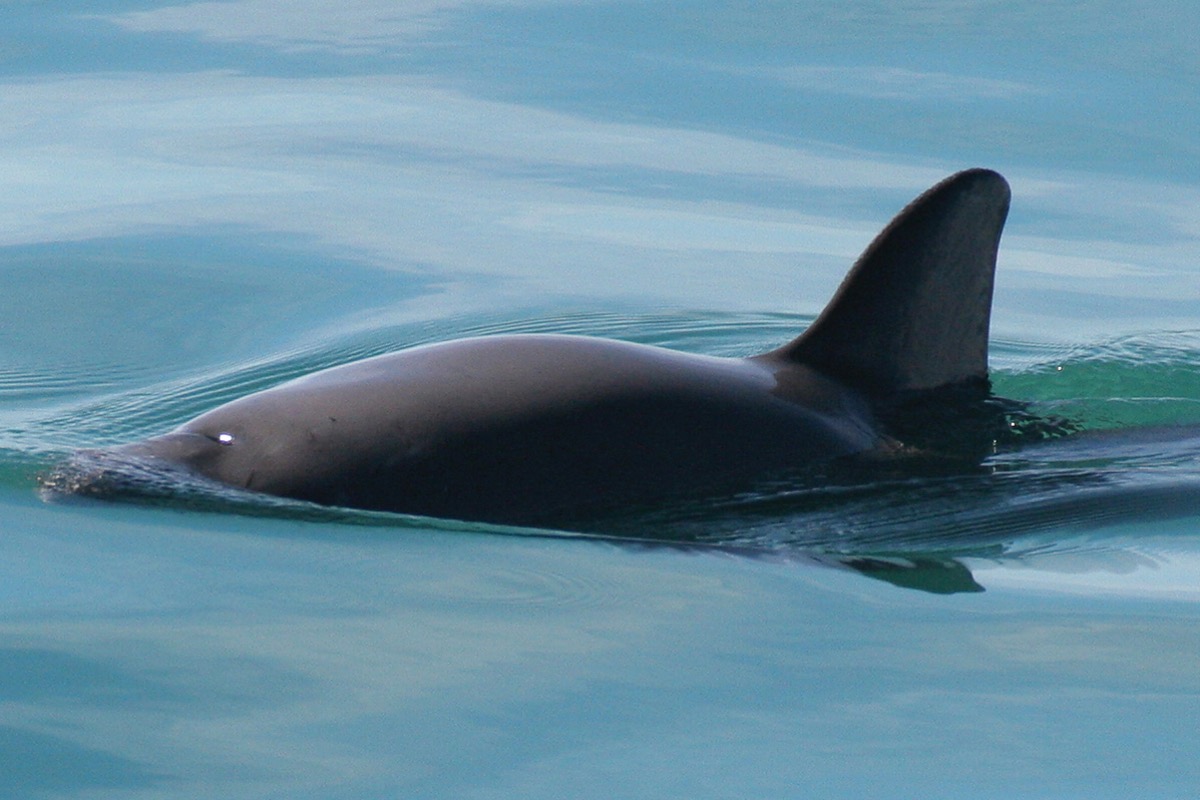

The vaquita is a species of porpoise endemic to the northern end of the Gulf of California in Baja California, Mexico. (Paula Olson/NOAA via AP)
MEXICO CITY (AP) — Mexico acknowledged Saturday it faces sanctions from the international wildlife body known as CITES for not doing enough to protect the vaquita, a porpoise that is the world’s smallest cetacean and most endangered marine mammal.
The sanctions have not yet been announced, but they could make it difficult for Mexico to export some regulated animal and plant products like crocodile or snake skins, orchids, and cactuses. Commercial seafood species like shrimp would not be affected, but the ruling sets a precedent and some groups are pushing for seafood import bans.
“While no one relishes economically painful sanctions, all other efforts to prompt Mexico to save the vaquita have failed,” said Sarah Uhlemann, international program director at the Center for Biological Diversity. “We hope these strong measures wake up the Mexican government.”
Mexico’s Secretariat of Foreign Affairs said in a statement that CITES had ruled that Mexico’s protection plan for the vaquita was insufficient.
Studies estimate there may be as few as eight vaquitas remaining in the Gulf of California, the only place they exist and where they often become entangled in illegal gillnets and drown.
The foreign affairs department said CITES had ruled the protection plan “inadequate” and said the full ruling —and possible sanctions— “will be officially announced next week.”
The department called the ruling an “unequal treatment of our country, because its did not take into account the many and exhaustive actions that have been taken.”
Mexico recently submitted a revised protection plan to CITES after the body rejected an earlier version. Mexico’s plan lists establishing “alternative fishing techniques” to gillnet fishing as one of its top priorities. But in reality, the government’s protection efforts have been uneven at best and face often violent opposition from local fishermen.
The administration of President Andrés Manuel López Obrador has largely refused to spend money to compensate fishermen for staying out of the vaquita refuge and to stop using gillnets. The nets are set illegally to catch totoaba, a fish whose swim bladders are a delicacy in China worth thousands of dollars per pound.
The government has also sunk concrete blocks with hooks to snare illegal nets in the last bit of the gulf, also known as the Sea of Cortés, where the vaquitas have been seen.
The activist group Sea Shepherd, which has joined the Mexican navy in patrols to deter the fishermen and to help destroy gillnets, says the efforts have successfully reduced gillnet fishing. But with so few vaquitas remaining, that may not be enough.
Moreover, experts say the Mexican government has not spent the money needed to train and compensate fishermen for using alternate fishing techniques such as nets or lines that won’t trap vaquitas.
“There is no alternative fishing gear” being offered, said Lorenzo Rojas, a marine biologist who has headed the international committee to save the vaquita. “The fisheries authorities have been notable for their absence,” leaving the effort to change practices up to civic groups and fishermen.
The Mexican government banned the use of gillnets in the area in 2017 with the understanding it would provide support payments and training on using less dangerous fishing methods.
CITES is the Convention on International Trade in Endangered Species of Wild Fauna and Flora, signed by 184 countries. It regulates trade and protection for protected species.


